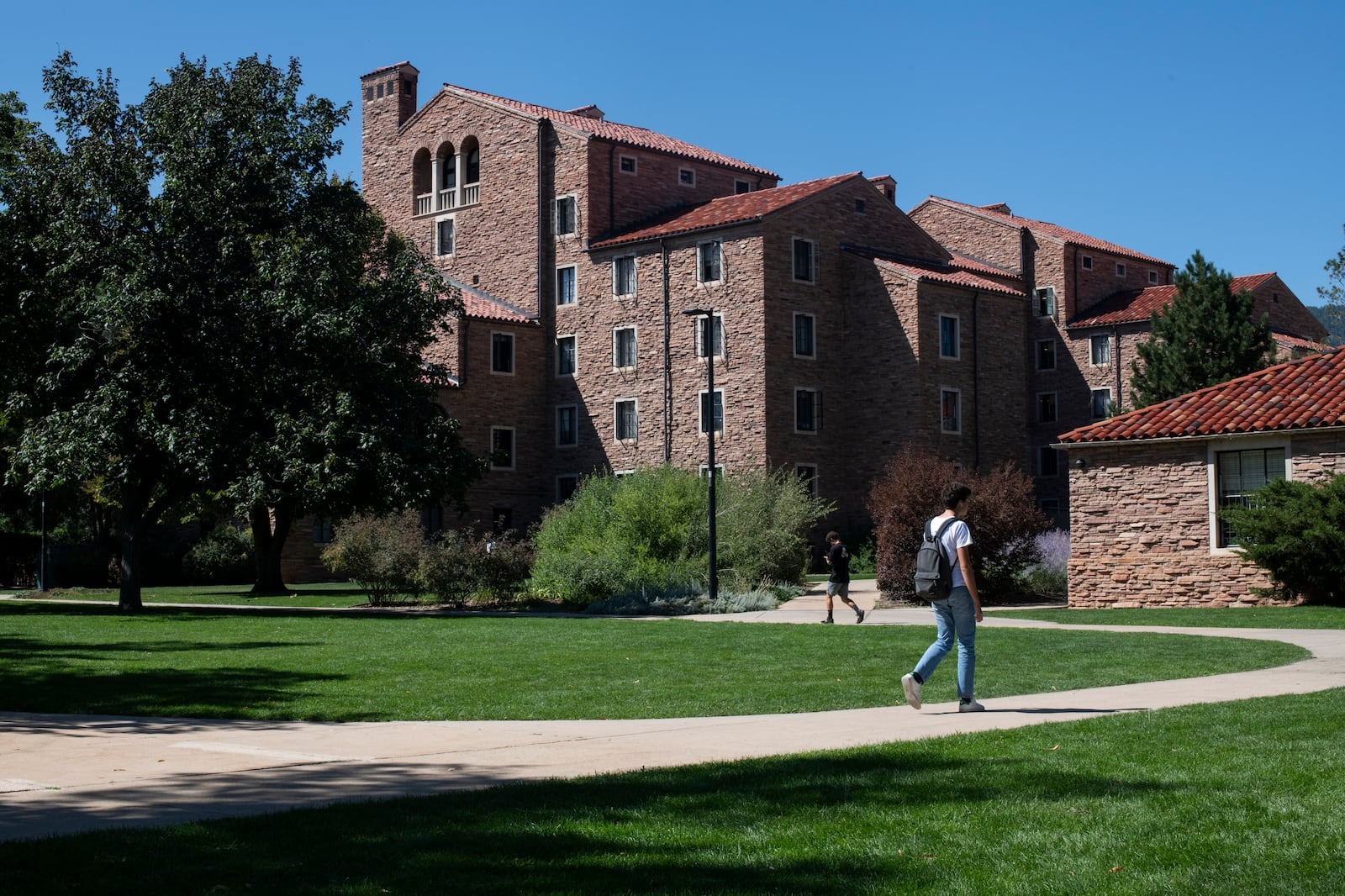
This story was originally published by Chalkbeat. Sign up for their newsletters at ckbe.at/newsletters.
By Jason Gonzales, Chalkbeat
Almost 796,000 Colorado borrowers hold more than $29 billion in federal student loan debt, contributing to the nation’s $1.6 trillion student debt load.
To help borrowers understand how to manage their debt, Young Invincibles and other Colorado advocates and government officials have held a series of clinics over the last several days. These services are especially important now that payments have restarted after a pandemic pause and new college graduates are beginning to repay their loans.
Cameron DeTello, Young Invincibles’ Rocky Mountain engagement manager, said the goal of the clinics is to ease the burden on borrowers, for example by showing them how to make payments more manageable. Young Invincibles is a national nonprofit that advocates on issues affecting young adults, and also helps educate them on issues such as economic mobility and financial choices.
DeTello said many young adults hold off on buying homes or having kids because of student debt.
“We’re hoping that by giving them more information, some of them might be eligible for forgiveness, or they’ll be able to save on some income-driven options, or maybe they’ll just feel better about their situation,” she said.
On average, Colorado student loan borrowers owe about $37,000 each — or roughly the average cost of a midsize SUV. It’s a daunting amount for adults who are also managing other costs, but experts say there are ways to make repayment easier.
“While it’s hard, we need to remain informed borrowers,” said Kelsey Lesco, Colorado student loan ombudsman, and one of the clinic’s panelists.
Here are five tips Young Invincibles shared this week during the clinics for managing student loan debt:
Learn how to navigate the Federal Student Aid website
Getting familiar with the Federal Student Aid Office student loan website is a great starting point. The student aid website holds a wealth of information about public student loans, DeTello said.
Federal student loan borrowers can create a login on the student aid website. There they can view their loans and find repayment options, DeTello said.
Know the makeup of your student loans
How much is your student loan interest rate and how much of your repayment goes to that interest? What type of loans do you have? Are they all federal loans, or do you have separate private loans?
These questions can be answered easily, but borrowers sometimes don’t know the answers, Lesco said. It’s hard to figure out how to manage loans unless you know their makeup, she said.
“It seems basic, but you just really need to know what’s coming,” Lesco said.
Apply for student loan repayment programs
There are seven types of student loan repayment programs, according to Lesco.
Lesco and DeTello said borrowers should familiarize themselves with the different options. Some might cut down monthly payments or the number of payments borrowers must make.
For instance, income-driven repayment programs — where payments are limited to a percentage of a borrower’s income — are popular options that can make the monthly bill more manageable. Some borrowers are eligible for a public-service loan forgiveness program if they work for a qualifying employer, such as a government entity or nonprofit organization. The program forgives the balance after 120 payments.
Learn what different repayment programs can do for you by visiting the student aid office’s loan simulator.
Watch for scams
You can access everything you need on your account through the student aid website, Lesco said. That means no one from the U.S. Department of Education will call you about forgiving your loans. They also won’t ask for payment over the phone.
If someone claiming to be from the department contacts you this way, don’t fall for it.
This is especially important during uncertainty about repayment programs, such as the recent court ruling blocking a Biden administration repayment program, she said.
“Scammers are always targeting student loan borrowers,” she said. “And it’s a constant danger during periods of seeming instability or confusion.”
Coloradans who suspect a scam can file a complaint with the state attorney general’s office.
Can’t figure it out? There are people to help.
The federal student loan services website has a dedicated help line and ombudsmen to help borrowers troubleshoot.
Lesco said the Colorado ombudsman can also help with complaints. Her office can help investigate, report on, and settle complaints related to student loans.
“We’ll help them navigate problems that they’re experiencing with their student loan,” she said.
She’s worked with borrowers who have issues getting their payment counted, whose servicers aren’t getting in touch with them, or who have had issues with their schools, such as colleges that have committed wrongdoing.
And Colorado’s Office of Financial Empowerment also has plenty of financial literacy resources, Lesco said.
Jason Gonzales is a reporter covering higher education and the Colorado legislature. Chalkbeat Colorado partners with Open Campus on higher education coverage. Contact Jason at [email protected].









